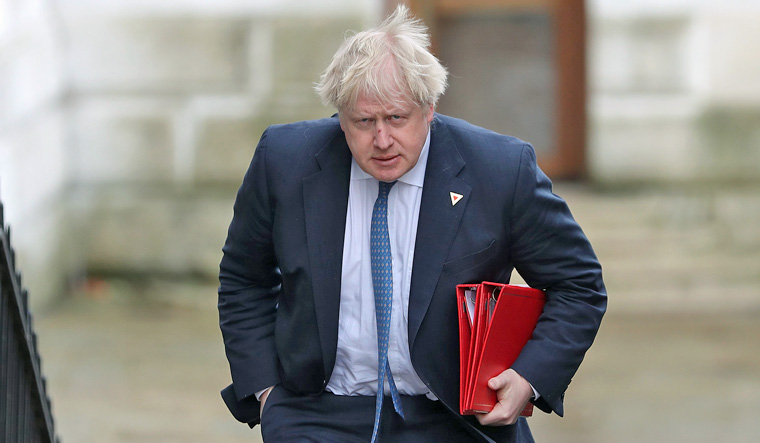
Boris Johnson has just been announced as the next PM of the United Kingdom. Current PM Theresa May will present her official resignation letter to the Queen on Wednesday. Johnson began his acceptance speech by praising his predecessor, saying it had been "a privilege to serve in her [May] cabinet". He is expected to form a cabinet by Wednesday. Johnson won comfortably with 92,153 votes against his rival's 46,656. 160,000 Conservative party members cast their vote to choose the next leader of the country. Theresa May, in turn, promised him her "full support from the back benches".
Alexander Boris de Pfeffel Johnson is a British conservative party politician and a Member of Parliament (MP) representing Uxbridge and South Ruislip from 2015 in the House of Commons. Born in New York and educated from Eton and Oxford, he has donned many roles during his lifetime, starting off as a journalist for The Daily Telegraph and also as a graduate trainee at The Times for a short term.
He was widely criticised by his fellow journalists for reporting untruths and fabricating fake stories. He also worked as a political columnist and received praises for being ideologically eclectic and distinctively written and was criticised for bigotry for his comments on Africans and gay men. He went on to become the editor of The Spectator and reported following the traditional ring wing bent of the publication and held up the post from 1999-2005 which saw an increase in its readership.
Boris’s political career started off as an MP in 2001, when he won from Henley as a conservative candidate in the general elections. He held the position till 2008 during which he was given the position of arts minister in the shadow cabinet reshuffle of 2004. He got re-elected as the MP for Henley in 2005. He stood as the conservative party candidate for the post of the Mayor of London in 2008 elections and came out victorious. He won the mayor seat again in 2012. His mayoral term saw slightly leftist policies being implemented such as London Living Wage scheme and for endorsing amnesty for illegal migrants.
He returned to parliament in 2015 and in 2016, became the leading spokesperson for Brexit advocating the country’s exit from the union. Boris was named foreign secretary by Theresa May, after she succeeded David Cameron as prime minister.
He supported Theresa May’s policies of joining the US and France in the Syrian air strikes. Johnson stepped down as the foreign secretary on July 9th due to disagreement with May over her Brexit strategies and returned to the role of a back bench MP.

No comments:
Post a Comment